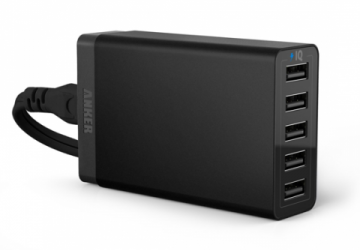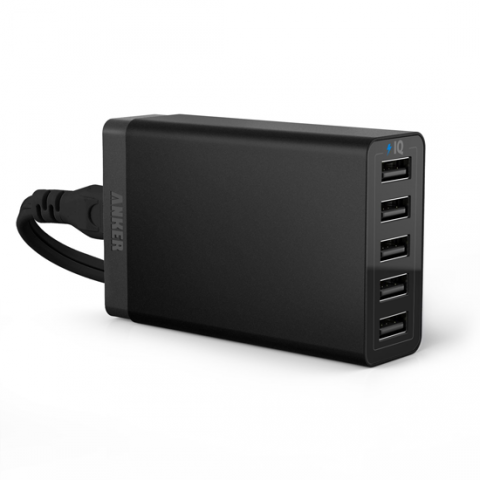One Charger to Rule Them All

If you're anything like me, your nightstand is full of electronic devices that need to be charged regularly. Every night I have:
-
Nexus 7 tablet.
-
Cell phone.
-
Kindle Paperwhite.
-
iPad Air.
-
Fitbit.
Granted they don't all need a daily charge, but the two tablets and cell phone certainly do. Although many of you are probably tsk'ing me for buying an iPad, for this purpose, it's a fine example of a device that is finicky about being charged. Many tablets, the iPad especially, require a lot of amperage to charge properly. Enter the Anker 40W, five-port USB charger.

Before buying the Anker, I had to get a power strip in order to plug in all the wall-warts required to charge my devices. Two of those devices (the Fitbit and Kindle) didn't even come with power adapters, just USB cables to plug in to a computer for charging. With the Anker USB charger, I'm able to use a single, regular-sized power cord to charge all my devices. Because it's designed specifically to charge, it has some great features as well:
-
Dynamic, intelligently assigned amperage, up to 2.4 amps per port (8 amps max for all ports combined).
-
Compact size (about the size of a deck of playing cards).
-
Supports Apple, Android and other USB-based charging.
I've been using the Anker charger for several weeks and absolutely love it. There also is a 25 watt version if you don't need the full 40 watts, but I highly recommend getting the larger version, just in case you need more power in the future.
I purchased the charger on Amazon for $26, and although that's more than I'd normally pay for a USB charger, it's more like getting five chargers in one. Check it out at https://www.ianker.com/support-c7-g345.html.










